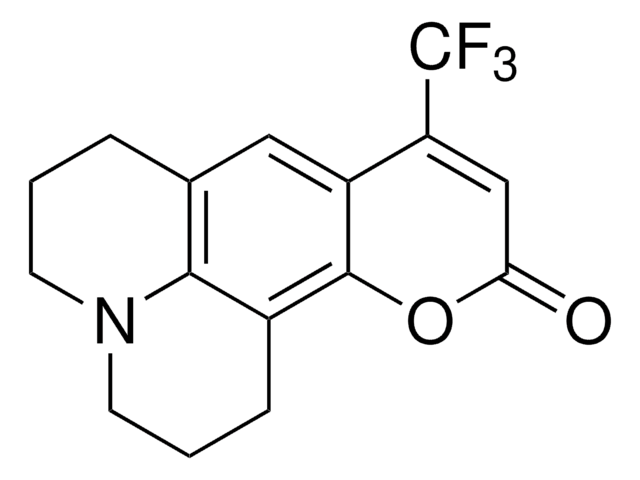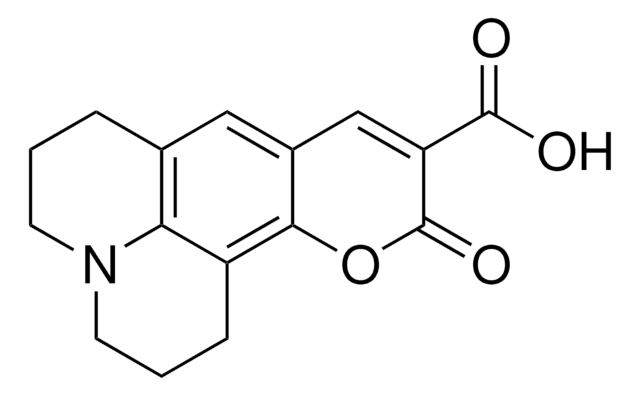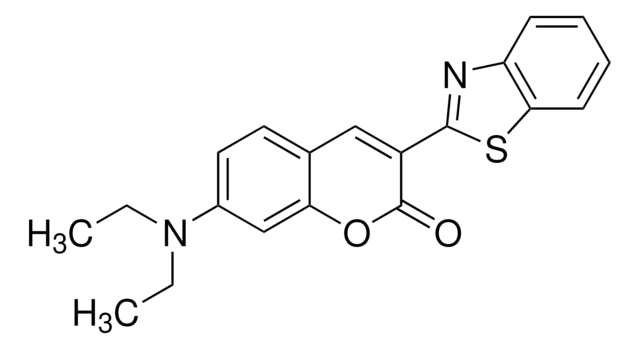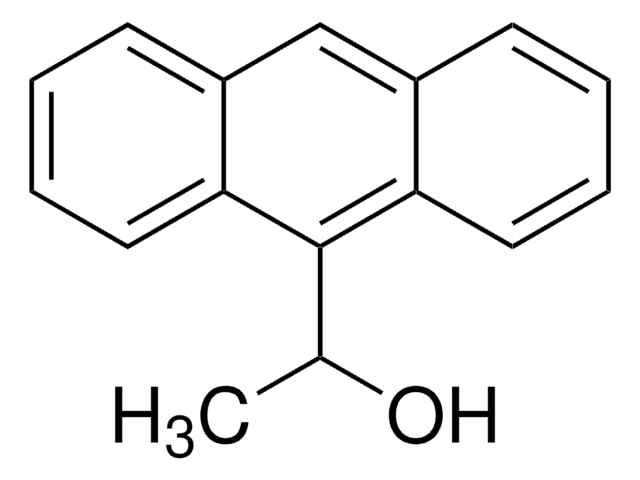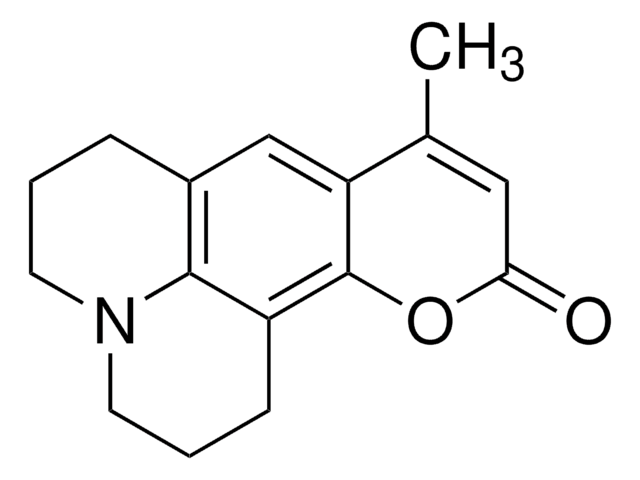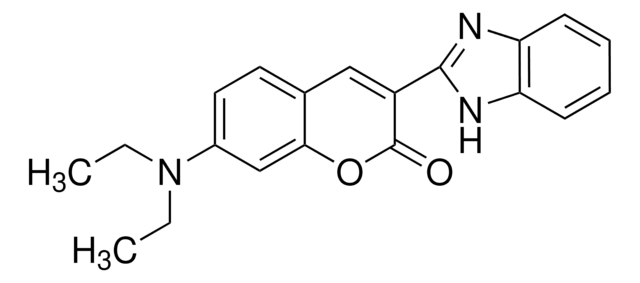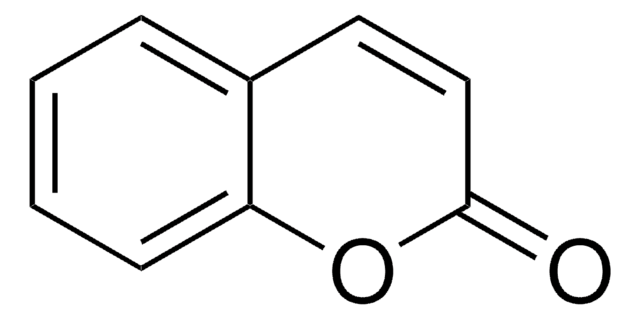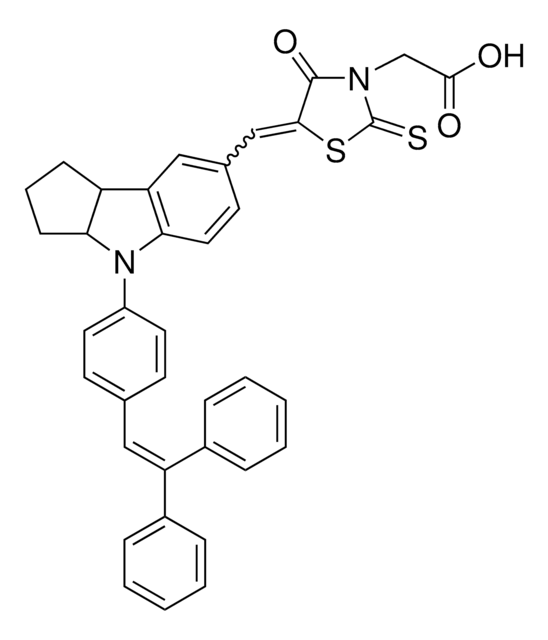546127
Coumarin 30
Dye content 99 %
Synonym(s):
3-(2-N-Methylbenzimidazolyl)-7-N,N-diethylaminocoumarin, Coumarin 515
About This Item
Recommended Products
form
solid
Quality Level
composition
Dye content, 99%
mp
225-229 °C (lit.)
λmax
413 nm
fluorescence
λem 478 nm in ethanol (Lasing peak 510 nm, lasing range 492 - 550 nm (ethylene glycol), pump source Ar (458 nm))
SMILES string
CCN(CC)c1ccc2C=C(C(=O)Oc2c1)c3nc4ccccc4n3C
InChI
1S/C21H21N3O2/c1-4-24(5-2)15-11-10-14-12-16(21(25)26-19(14)13-15)20-22-17-8-6-7-9-18(17)23(20)3/h6-13H,4-5H2,1-3H3
InChI key
KZFUMWVJJNDGAU-UHFFFAOYSA-N
Related Categories
General description
Application
Packaging
Signal Word
Warning
Hazard Statements
Precautionary Statements
Hazard Classifications
Eye Irrit. 2 - Skin Irrit. 2 - STOT SE 3
Target Organs
Respiratory system
Storage Class Code
11 - Combustible Solids
WGK
WGK 3
Flash Point(F)
Not applicable
Flash Point(C)
Not applicable
Personal Protective Equipment
Choose from one of the most recent versions:
Already Own This Product?
Find documentation for the products that you have recently purchased in the Document Library.
Customers Also Viewed
Articles
Dye-sensitized solar cells (DSCs) are 3rd generation solar cells combining the promise of high efficiency with low production costs.
While dye sensitization as the basis for color photography has been accepted for a very long time,1 attempts to use this principle for the conversion of solar light to electricity generally had resulted only in very low photocurrents, below 100 nA/cm
Our team of scientists has experience in all areas of research including Life Science, Material Science, Chemical Synthesis, Chromatography, Analytical and many others.
Contact Technical Service